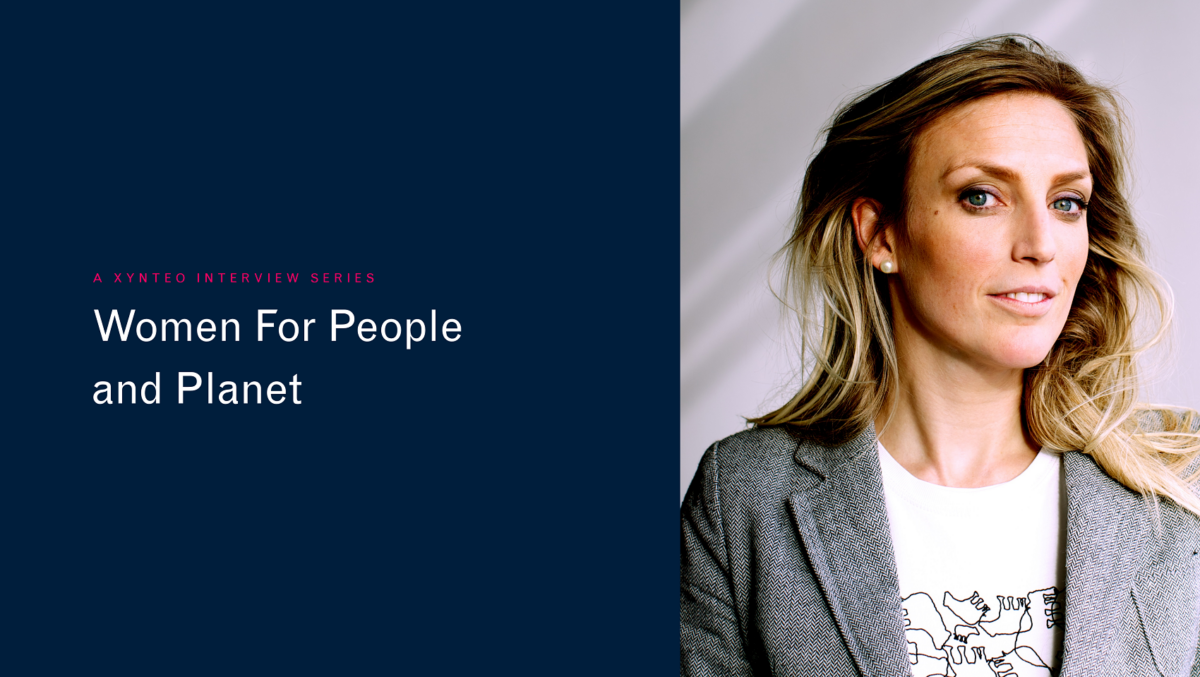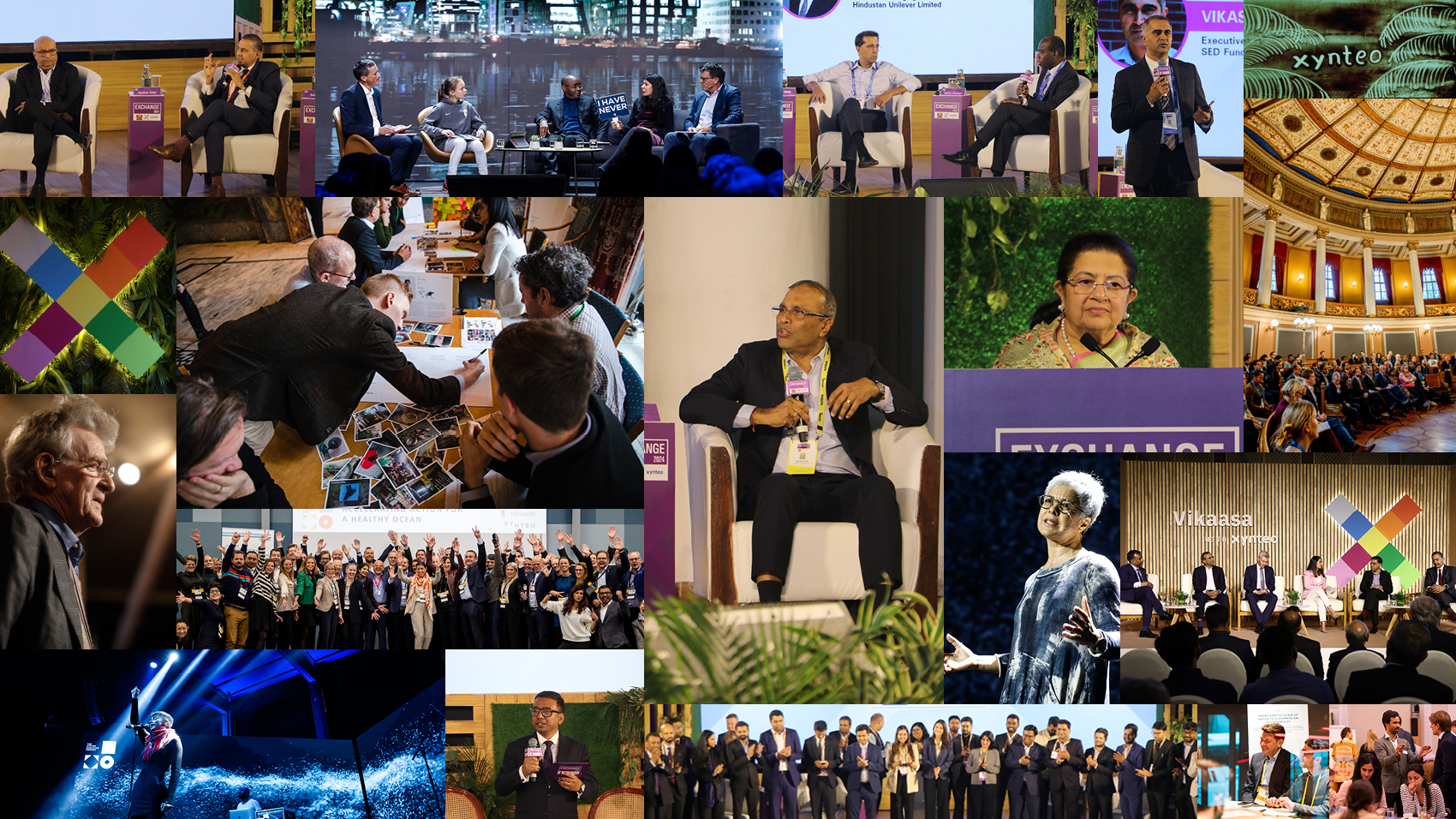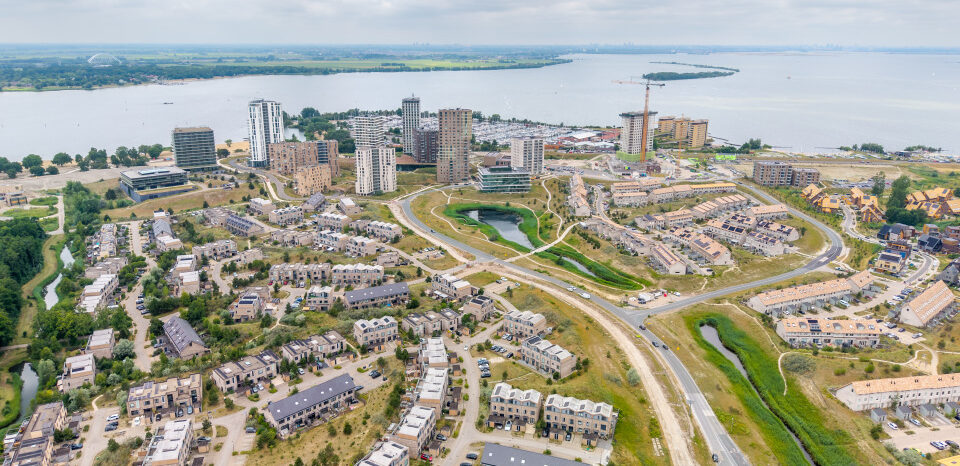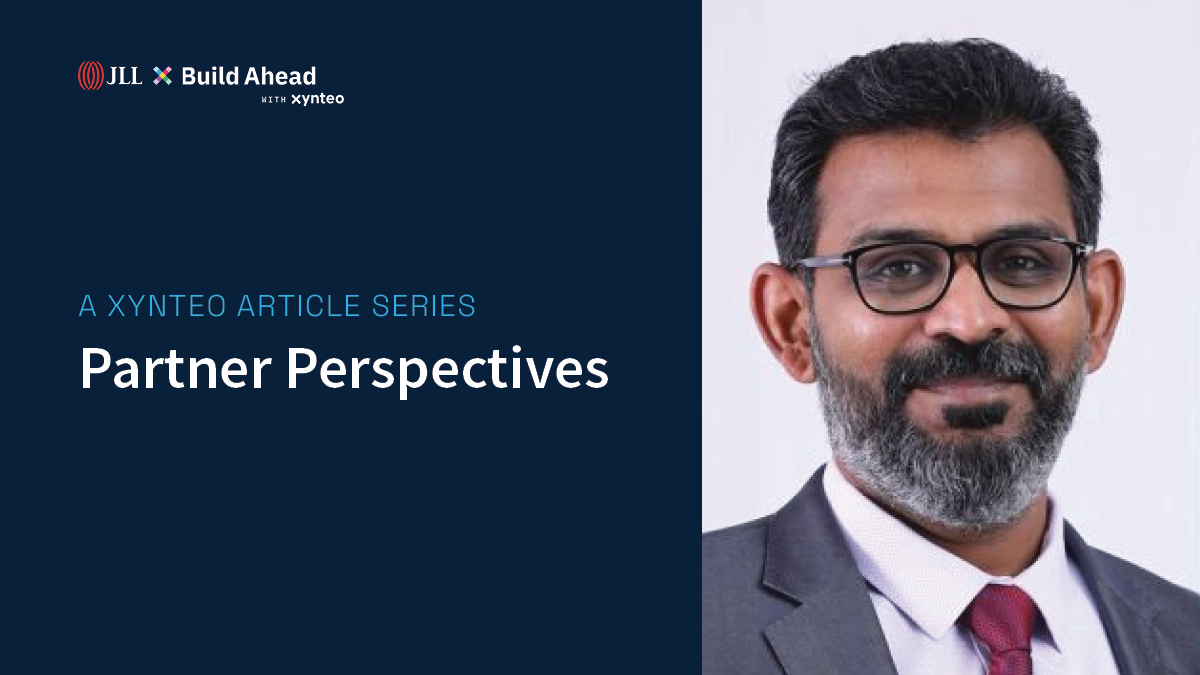From an inquisitive child who questioned everything to an energetic young adult trying to find her role in the world to a self-assured woman who, in her own words, is a break-free-of-the-pack person who helps enable others to be more boldly authentic, Dr Victoria Hurth has always strived to make a difference.
Xynteo’s Sally Gray sat down with Victoria to talk about her journey, what she has learnt, and how she sees the future of sustainability in the corporate world.
What does your personal journey towards sustainability look like?
Victoria: In a nutshell, I was two things—I was very independent and questioned the ‘why’ behind everything I saw, especially the rules. I’d always ask, why are we doing this? You know, like kids do. The answers I got made me realise that adults seem to make nonsensical decisions that work against their own best interest. I had a wonderful family and lots of debates, a feeling I could achieve anything but very little material wealth—so I knew that the path to a good life wasn’t making all decisions based on the biggest car I might get. But that was what the world around me seemed to be advising me. I thought there’s something wrong with the system at large and that business had a big role – and big role in the solutions. But I knew I didn’t know much—from that young age I wanted to know what was wrong, I wanted to know what could be done and I wanted to know the role I should play.
I am not going to lie, it took me about 30 years and concerted immersion in academia, management and a wide range of sectors and disciplines to figure this out. The boldness you hear in my words now comes from a place where I have the answers—enough to feel compelled to empower others with it given the urgency we now face. The hardest part of all of this was having so much energy and desire to help but without a clear channel for it. I wanted to act, and I saw myself as having an important role to play, but I wasn’t sure what it was, and I didn’t want to make the world a worse place by acting too boldly on the wrong information.
I feel strongly that I won life’s lottery—I have the education, the connections, and the financial wealth to be able to influence the world in ways 99% of others can’t. I don’t want to use my position to further improve the luck I have had for myself. I have carried this strong feeling since my childhood and it has led me to having an independent life full of purpose and, therefore, meaning. So ironically, the further I walk the path the bigger the payback!
What are the skills and experiences that you’ve valued the most on this journey and have equipped you best?
Victoria: There are so many, but I would say having moments of immersing myself in a mind, body, and soul learning journey have been vital. I was lucky enough to attend two courses at Schumacher College in Totnes and teach others. These moments were vital in what I call ‘waves’ of understanding. Sustainability has rightfully become professionalised, but I fear so many in sustainability roles are only on the first wave of understanding and need to take space to really open up to what it means to be a human living in this most precarious yet creative moment of time.
In terms of skills, co-leading the international consensus building process to create ISO 37000 (the first global multi-stakeholder view on governance of organisations) taught me so much about listening, resolving issues, meeting people where they are, making them feel heard and trusting a process. Transformation will not happen without consensus-based clarity about the destination. Being knee-deep in untangling misconceptions and crossed wires about the most vital of topics taught me this from the bottom up, and taught me the incredible value in both the outcomes and the process.
I would say my life is one of extremes—extremely easy and extremely difficult. Having been in the position myself when I was a management consultant for Accenture, I deeply feel for those whose lives are stuck in business-as-usual. So many people increasingly feel anxious about the breakdown of the systems that support our wellbeing but yet have to wake up every day knowing their skills are being used in a way that isn’t resolving the issues and probably making them worse. Being purpose-oriented from a young age meant I managed to get myself out of that—but it was hard. This has led me to a very luxurious place where I can be that boldly authentic break-free-of-the-pack person who is confidently, and with tools and evidence saying, look, we’re not on our own with this thinking. We don’t have time for everyone to go through the 30-year journey I did. So, I feel my main role is to use the position I am in to help enable conditions, so that others stuck in that reality can be more boldly authentic and in turn break free.
What opportunities have been the most important to making progress in your sustainability journey?
Victoria: I studied business at university because I wanted to understand, and start to answer, those questions I had. I went to work at Accenture because I wanted to get to the heart of decision-making quickly so I could even better understand and try to change it. But I left Accenture because I realised, I was not going to change the world through a large consultancy in 2000—perhaps the peak of Business-As-Usual. I had a moment of deep humility then. No matter how strong and purpose-driven I was, the system would have changed me before I changed it.
Then, trying to break free of Accenture, I was in South Africa, at the time of the 2002 World Summit on Sustainable Development, volunteering in a township. I didn’t go to the summit but materials from it started appearing in the office. That’s when the thin veil that separates most of us from the whole field of sustainability and sustainability science, came down. I could then properly begin to find the answers I had been looking for from wise people who had been trying to wake the world up for many decades. It gave me a place to find out how to focus my efforts, because up until then I was just the bundle of energy and purpose with nowhere to put it.
For that reason, I did a Masters in Environment and Development in South Africa and went on to do my PhD. But I went into academia to find my answers and change the world—so I took my consulting background, my business focus, organisational focus, marketing focus as well as my learnings as an amateur psychologist, sociologist, and anthropologist, and brought it all together to make positive change—that’s how I became a ‘pracademic’.
I think that sustainability has mistakenly been only focused on the bottom of the (Herman Daly) triangle—stopping doing harm. That means we are starting to question the ‘how’ but we still assume we have the right ‘why’.
What barriers have you faced?
Victoria: The biggest barrier that I faced, and therefore the biggest to overcome, really, was that confidence bit. The bit that says do I know enough about this be sure that my agency will end up doing good? For quite some time I really wasn’t sure, and so kept my conclusions vague and my advice light—academia is a great place for that! However, as time passed, my day-in day-out enquiries and work led me over again to the same conclusions about the problems of the market economy and central solutions of purpose, governance, and marketing. This combined with the massively growing urgency brought me to a place of grounded confidence. I will never lose that academic and philosophical humility that says there is never an end conclusion, and truth is only a subjective view. But at the same time we are all forced to choose a path moment by moment. And, if the information I have is likely to result in better actions than the status quo, then sitting on the fence is not an option.
So, when I say that I am trying to unlock the context for others, it’s because I can do that now, in a way that is confident, because I know the weight of evidence from both practice and academia, and the rational logic that sits behind it. That sort of confidence comes not just from knowledge but from putting yourself out there. Being part of sleeves-rolled-up, multi-sector, multi stakeholder conversations to realise others feel the same. I overcame confidence barriers over the years through leaps of faith, through going into the dark, through just putting myself out there, but trying to stay humble. It is an art that I work on everyday, but I am in such a different place now than when I was younger. I know many others want to act but find it hard to confidently walk the less well-trodden path, and have so many questions. I believe I have an obligation to use my hard-won confidence to empower them to leapfrog their leadership. So much is at stake.
What has been your proudest impact achieved?
Victoria: Having been through my period of discovery, I am now coming towards the end of my period of ‘encoding’. In other words helping create documents, courses and videos that can empower others. Four impact vehicles that stand out for me:
Leading the consensus development of two globally ground-breaking standards probably top that list. ISO37000: Governance of Organisations is such an important standard and took a massive global team working tirelessly. There were 77 countries, 25 liaisons, and it took 5 years from start to finish with every single word in the standard deliberately there. Some thought it would never be possible, but it was and it is the first time we have a global view on what governance is and how an organisation (any organisation in any country in the world) can be governed to align with a sustainable future. The second standard is the first National Standard in Purpose-Driven Organisations: PAS 808. This was built with a team of experts and a public consultation process, and is the first time the concept of purpose has been made crystal clear. And the first time we have a consensus view on the governance and management needed to align an organisation with long-term wellbeing for all (sustainability).
The second two impact vehicles are online courses. I don’t know if you’ve heard of the Cambridge University Institute for Sustainability Leadership eight-week online courses. I have been lucky enough to be involved in the detailed development of two of them on the most vital topics for bringing sustainability aligned organisations to life: governance and marketing.
When I was an academic, I was spending a lot of time on my own, feeling like I was banging my head against the wall trying to rise above all the myopic BAU stuff in the marketing and sustainability space, and trying to create impact. I had been pushing the ‘you can’t have a sustainable organisation without sustainable marketing’ view for many years, but it went nowhere. The world didn’t seem ready for it. I had kind of put that in my back pocket—then seemingly from nowhere I was asked to codesign a new course for CISL “Sustainable Marketing, Media and Creative”, a course I now run. Incidentally, at precisely the same time I was asked to advise the UK Chartered Institute of Marketing on a new sustainable marketing course they were designing. It was like the world had finally woken up—within the same few weeks!
I was involved in a similar way in the equivalent course on governance, after many years of trying to clarify and simplify what we mean by governance and why it is fundamental to long-term wellbeing for all (sustainability). That course has just launched. It has been such important moments for me to see all those years of work, including my PhD, embedded in the frameworks and the thinking that will now influence leaders around the world.
It is a great example of the fact that if you work with the right intention, those efforts will often bloom when the time is right. The lesson in that is that, you know, if you do something with the right intent, pushing at the boundaries of what you think is possible at that moment in time that when the time is right it will bear fruit. You may not ever live to see that day, but leadership is, as we all know, an act of faith.
(Victoria is also a contributing author of the book “Standing Up for the Planet” and was a speaker at the EOQ Congress 2023).
How do you see the future of the CSO role/sustainability teams in the board room?
Victoria: I think that sustainability has mistakenly been only focused on the bottom of the (Herman Daly) triangle—stopping doing harm. That means we are starting to question the ‘how’, but we still assume we have the right ‘why’. We’re saying let’s just do everything we have always done and keep the assumptions we always have about the economy and business, but just stem the harm. We do that because it is easier than leaning into what sustainability and sustainable development was always about, i.e., ensuring development (long-term wellbeing for all) without destroying that collective long-term wellbeing in the process. So it has to be about both the goal and the means to achieve that, the why AND the how. By focusing on stopping harm, but not what we are actually set up to produce in the first place, it means that what we are innovating for in our organisations is not optimised for good and probably doing harm as well. Think kitchen sprays with antibiotics in them, face creams with chemicals in them, vapes.
The role of the CSO has been created in this context. In a truly sustainability-aligned organisation long-term wellbeing for all (sustainability) would be the pinnacle goal (purpose), and organisations will only be allowed to exist and have access to our collective resources (like when kings sanctioned companies based on their contribution to society) if they could argue the case for this. They would then need to ensure the purpose was achieved without harming the social and environmental systems that underpin collective long-term wellbeing (do no harm). We have started to push ahead legally with the do no harm agenda (ESG), and purpose-driven organisations are gaining huge momentum as the future of the market economy. A Wellbeing Economy that is governed to achieve the goals of collective wellbeing that were always there, but we forgot to govern. If we do this well (see PAS 808 on Purpose-Driven Organisations for the emerging standard) then we will be using governance to ensure organisational decisions are aligned with a sustainable future.
What then does this mean for the CSO? I believe they will always have a role, because the science will always be changing, and because thinking systemically will always be difficult. And innovating to the scale needed to be able to transform business models within those thresholds, whilst achieving the purpose, will always be a challenge. So, even if you’re a purpose-driven organisation and your reason to exist is an optimal strategic contribution to sustainability, you must keep checking your purpose is optimal, and you must ensure your business models and strategies dynamically deliver that without doing harm at a system level. For that you need a CSO. Just like everyone in a firm needs to have a firm grasp of finance, yet we have CFOs.
We need CSOs that deeply understand the emerging social and environmental science and the interconnections between them, ensure all decision makers are clued-up enough on that, and ensure the strategy and governance systems are on track. CSOs remain a vital advisor to the governance system. Direction (objectives, parameters and strategy to achieve the goal within the parameters), oversight that the objective is being achieved within the parameters and accountability for that, along with corrective action, is the core function of the governing board (board) (see ISO 37000 for details). However, in a world where all organisations must align with a sustainable future, I can’t see how they can achieve those tasks without an expert in the technicalities of the threats and responses required to achieve long-term wellbeing for all.
To be inspired by all our latest interviews, visit our Women for People and Planet interview hub.
Read moreStay up to date with our latest interviews by following us on social media (LinkedIn I Twitter), or Contact Us to find out how we can help your leaders and organisation create people and planet-positive impact.



